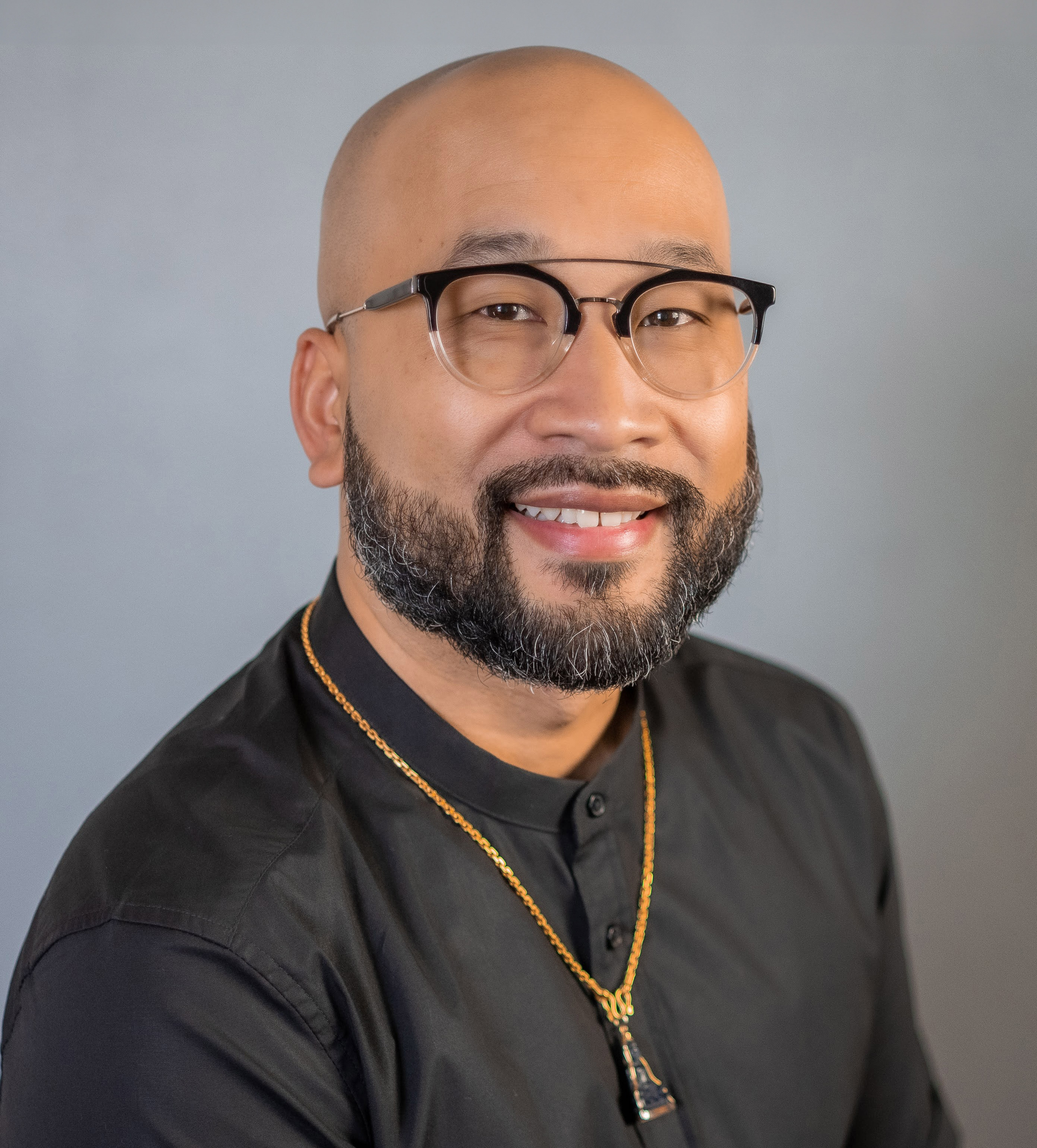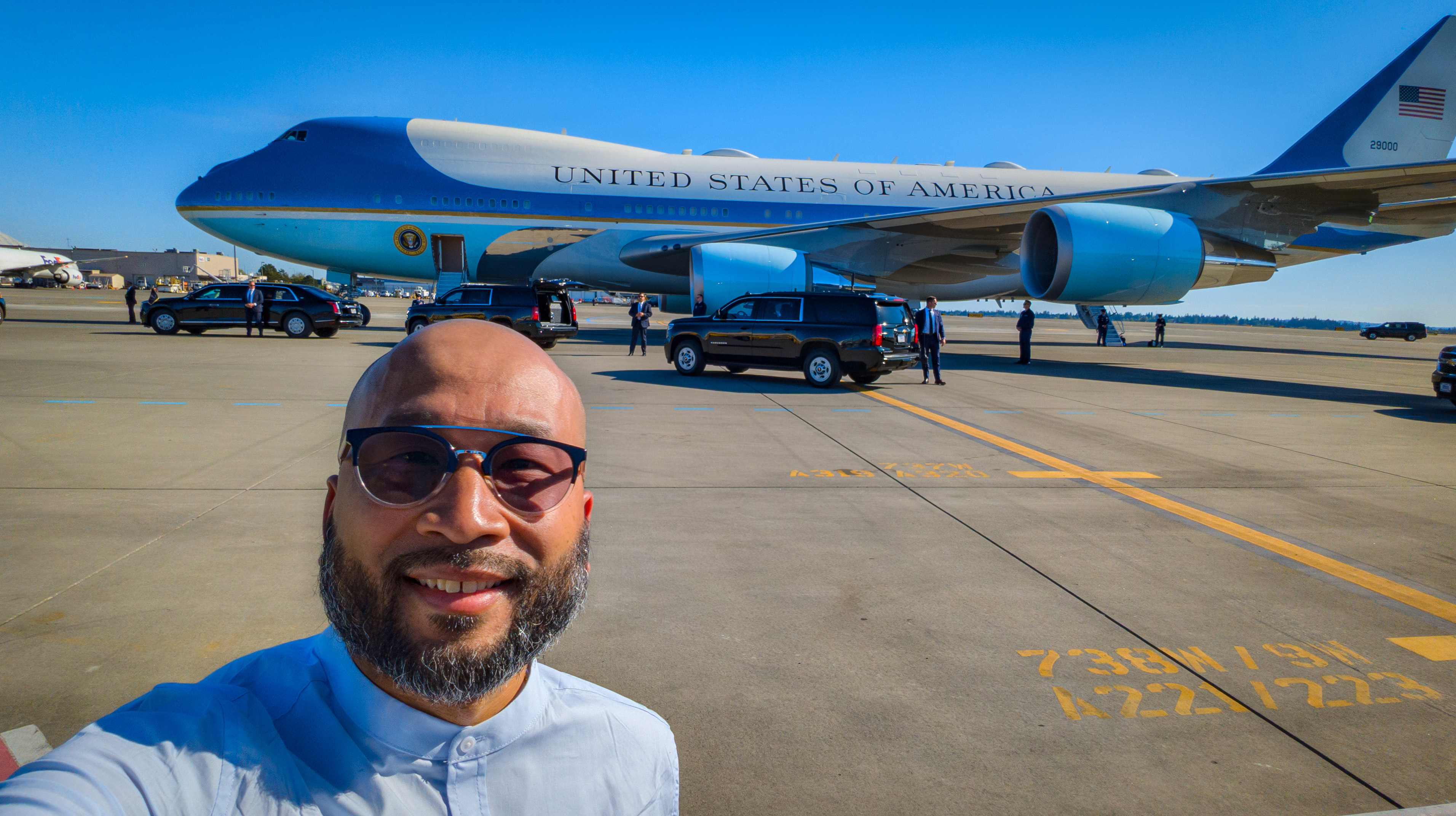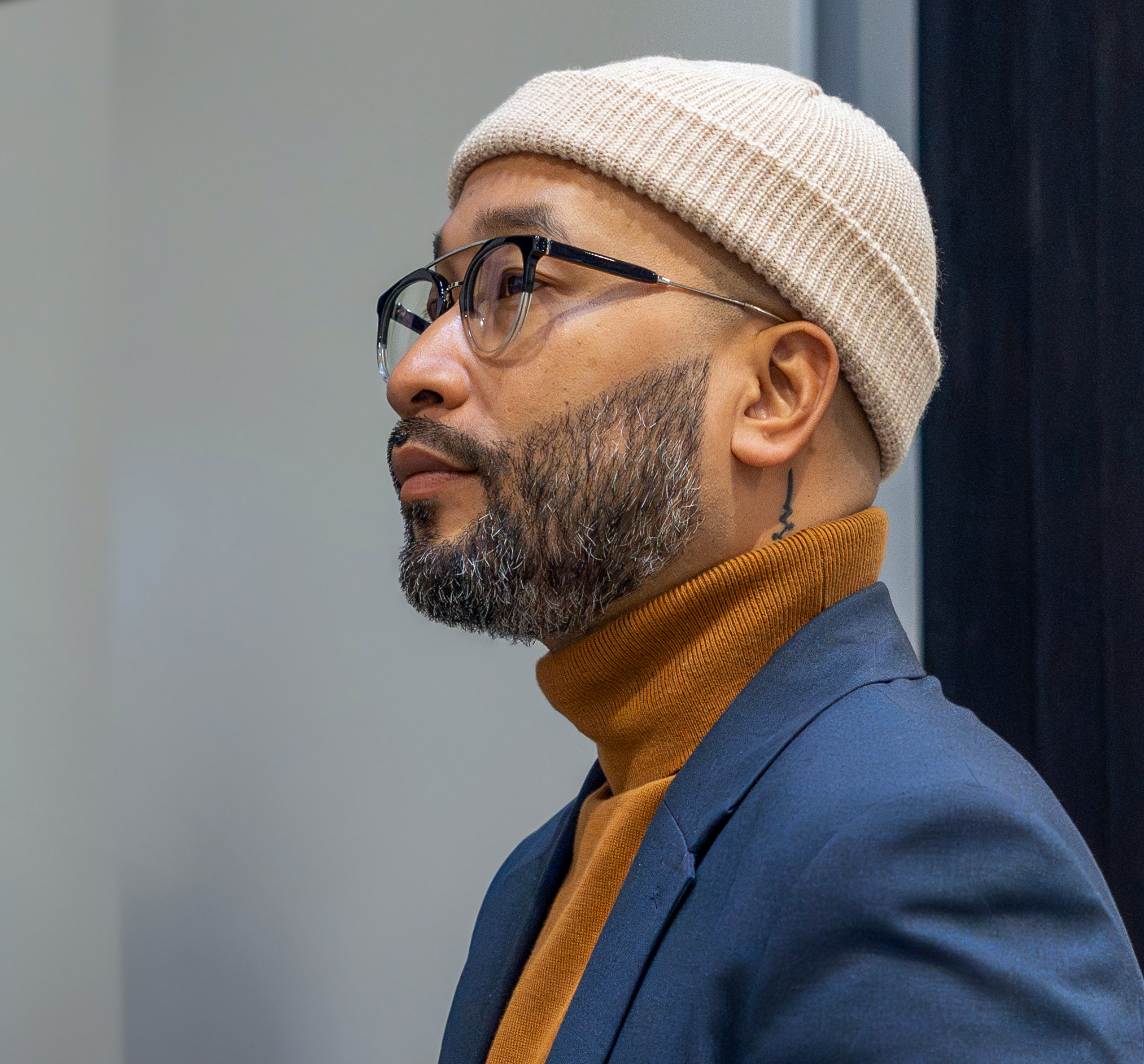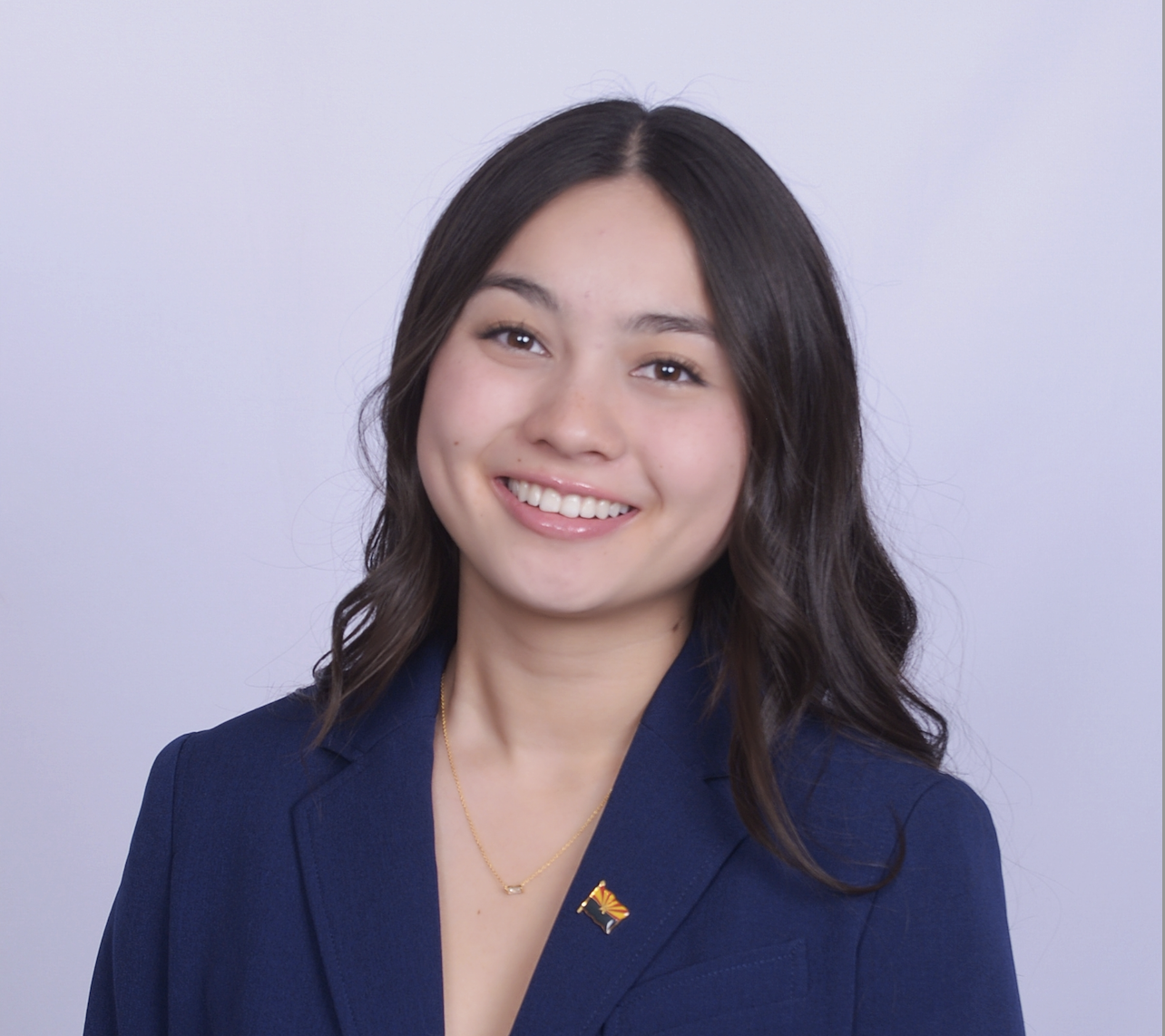
Silong Chhun
“I feel like I’m representing a whole generation of people who never saw themselves in government and never believed it worked for them. My goal is to show that government doesn’t work for us unless we make it work for us.”
Being a refugee, a brown person who’s part of a marginalized community—just existing is political. I don’t feel like I have a choice not to be engaged.
I’m a communications professional with nearly a decade of experience in public service, currently serving in the Public Affairs Unit at the Washington State Attorney General’s Office while running for city council. My work focuses on ensuring transparency, accessibility, and public trust in government.
Long before my professional career, I’ve been a lifelong advocate for social justice—fighting for immigrant rights, labor protections, and marginalized communities. As a Cambodian refugee, my very existence in this country is an act of resistance and resilience. These lived experiences continue to shape how I serve and uplift my community every day.
I was born in 1979, just five days after the Khmer Rouge was toppled by the Vietnamese government. My family and I came to the United States as refugees after the Vietnam War, settling in Tacoma, WA, in 1981.
I didn’t speak English until third or fourth grade. One of my core memories from that time is helping my parents navigate life in a new country. I went with them to doctor’s appointments, translated, and handled mail or bills they couldn’t read yet. I didn’t know the term for it at the time, but I was basically their social worker.
Being the oldest of three brothers, I took on that role naturally, and service became part of my life. I grew up in a neighborhood in Tacoma called Salishan, which was historically (and still is) one of the city’s most marginalized communities.
My parents weren’t formal public servants. They were just busy surviving, but they modeled community care. I saw my dad as a neighborhood peacemaker, which had to be a really big task for a 20-year-old escaping a war-torn country. The fact that he could carry that trauma and still advocate for our community really stuck with me.
Finding Identity, Community, and Purpose in Public Service
Public service wasn’t a career I initially set out to pursue, but it shaped me. About 12 or 13 years ago, I began intentionally serving. I joined city boards and commissions, including the first Immigrants and Refugees Commission, and the Arts & Heritage Advisory Board for Parks Tacoma, where I helped set up structures that still function today.
Two years ago, I began working in state government, first under Governor Inslee in his final term and now with Attorney General Nick Brown as a communications specialist. Being in those rooms where major policy decisions are made opened my eyes. I realized that people like me—refugees, people from marginalized communities—were rarely present to guide those conversations.
That realization became one of my motivations to run for city council.
Taking Action to Make Government Work for Everyone
This is my first city council campaign, representing the district where I grew up. I feel like I’m representing a whole generation of people who never saw themselves in government and never believed government worked for them. My goal is to show that government doesn’t work for us unless we make it work for us.
Being a refugee, a brown person who’s part of a marginalized community—just existing is political. I don’t feel like I have a choice not to be engaged.
I also hold a very privileged position: I’m a naturalized citizen, and I work in state government. Many of my community members, peers, and neighbors who aren’t citizens or are undocumented don’t have the privilege to speak their voice.
What motivates me is that I can be that voice. I can be the person on the front lines and stand as a shield—not necessarily to protect or defend, but to amplify the voices that need to be heard. I stay motivated because of the privilege I hold.
The Impact of People-Centered Governance
One of my most memorable experiences came while working with Governor Inslee, traveling all over Washington State. We visited communities facing a wide range of challenges, like homelessness, opioid addiction, unemployment, unsafe housing conditions.
What really struck me was that no matter where someone fell on the political spectrum, every Washingtonian wanted the same basic things for their family: affordable housing, a good job, and the ability to live a life of dignity. That’s the common thread I heard everywhere.
But each community has its own unique needs to achieve those things. State-level policies often function as “one-size-fits-all,” and I realized in a profound way that it doesn’t work like that. We have to really get down to each community and see what their needs are to address them. State laws may set the framework, but the real impact happens at the local level—school boards, city councils, county commissions, and other civic positions.
During that time, I also produced, filmed, and edited an award-winning documentary that captured the progress and challenges Washington faced over 12 years under Governor Inslee’s leadership. It was a powerful reminder of the impact thoughtful, people-centered governance can have.
Advice from a “Young Elder” to a Future Generation of Leaders
I’m excited for the future of public service and for future leaders. What I’m seeing here in the Tacoma South Sound area is a lot of young folks getting involved. I think because of the pressure of the current federal administration, many young people are paying more attention than my generation did.
Just this election alone, we have at least seven people under 25 running for Parks Commission. We have a city council candidate who’s fairly young, and the Pierce County Charter Review Committee has many young folks running as well. That inspires me, because these young people are shaping their own future.
I’m also seeing more diversity in future leadership. The faces are changing, and I think it’s changing for the better. That’s so important because every single person brings their lived experience and their stories to the table to help shape a better society and community for us all. That’s what I’m excited about.
My advice to any young person who wants to get involved in public service is to learn how to get things done, be someone people can depend on, and just show up. Half of public service is accomplished simply by showing up. Sometimes your presence alone means a lot.
But to show up, you need confidence in yourself. With my kids, I’m trying to instill confidence early, so they can set boundaries and speak their truths. I didn’t learn that until my late 20s and early 30s, when I realized you can filter out all the noise and criticism. If you stand firm in who you are, if you define and create yourself, no one can take that away from you.
Lastly, don’t look at another person’s plate to see if it’s full; look to see if they have enough. I think we all have a responsibility as community members in a society, as human beings, to just help people. And when you get to a certain level, you don't pull the ladder up behind you; you keep the door open that has opened up for you.







